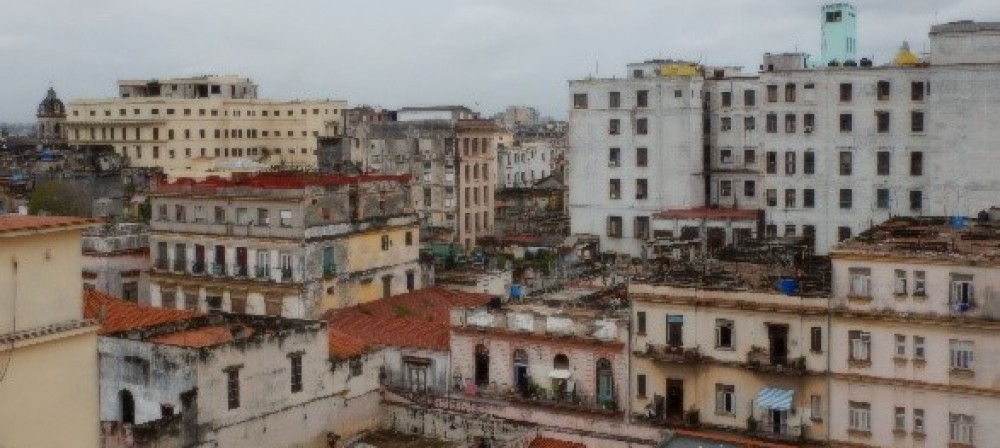After my trip to Cuba I will have spent time living, taking classes and doing service work in Argentina, Uruguay, Costa Rica, and Cuba, and will have spent much of my college education concentrating on the studies of peace and conflict in Latin American countries. I’m not from a Latin American country so I can’t possibly completely understand the sorts of ideals and philosophies that are present there. In my opinion, there are overarching themes of liberation present in every Latin American country. And to really understand how that philosophy functions in that country in everyday life it’s especially important to travel there and be able to understand the people and their history.
Student movements and solidarity based on nationality are iconic in most Latin American countries and stem from a philosophy of liberation. Cuba is a great example of these sorts of movements. We were able to experience the power of the Cuban student movements through our guest lecturer of the day, Jorge Lozano, who might be the most passionate person I’ve ever met. What was the most interesting thing to me about this lecture and all of our lectures is that the professors who are lecturing us were part of the history that they’re teaching. They completely encompass living history in a way that makes it feel so real for us as students. Talking to the professors or talking to Ana, hearing their stories, you realize that all of these terrible and wonderful and inspiring things that have happened in Cuba’s history don’t feel like history at all, not when you’re hearing about it like it happened yesterday. Lozano actually told us a story in which he spoke on behalf of the entire student movement and Fidel Castro responded directly to him. To me, it’s hard to wrap my mind around the things that so many Cubans have experienced, but to them they’re just doing their national duty as Cubans.
We were also able to experience an amazing organization called Quisicuabo, where almost a hundred people volunteer their time to cook food for those who can’t obtain food themselves. They are able to do this in the most graceful and beautiful way imaginable, going out of their way to ensure that all of their patrons continue to feel dignified and not like a charity case. They also emphasized that we could take pictures, but not to post pictures of their patrons anywhere, because it’s inappropriate and unnecessary to publicize human suffering to gain sympathy.
The entire experience from that day brought me back to the Latin American philosophy class I had taken the semester before. One of the philosophers we learned about theorized that the best kind of philosophy is the kind that comes from the periphery. Meaning that those who are on the outskirts, and not in the center, can see most clearly. This allows them to write philosophical thought which is of a higher quality than those in the center. While in Cuba, I thought about this concept a lot. If we’re looking at Cuba and the Cuban people as a whole, they really have been pushed to the peripheries for most of recent history due to it’s relationship with the U.S. If we imagine the United States as the center of the modern global world, and especially of the Western world (which most U.S. citizens likely do), then Cuba has been forcibly left out and moved to the outskirts of international relations for generations. I thought about what that does to a people and a government, and realized that Cuba has been experiencing life in the periphery since before the time of Jose Marti.
When we think of Cuba we often think of Fidel Castro and Che Guevara as the most prominent political and historical figures. And they are extremely important. But after visiting Cuba it was clear to me that the ideals of Jose Marti have a much greater influence on the modern daily lives of Cubans. His philosophy speaks the most clearly to them. Which is especially interesting considering he spent so much of his life in exile in Spain, New York and other foreign countries. I realized again that he was writing about Cuba, as someone who was seeing in from the outside but had a close connection within. Maybe this is why he was able to connect so deeply with the hearts of the Cuban people, he was writing from the peripheries.
After both of these experiences I realized that to be Cuban is to be a part of the struggle for independence, for freedom, and it doesn’t end, because there is always suffering and repression. Cubans are constantly being forced into the peripheries of life. And it’s so important to always feel that fiery passion that causes you to need to do something to stop it.
